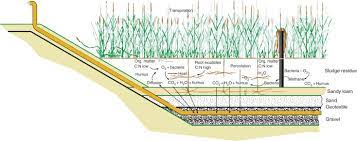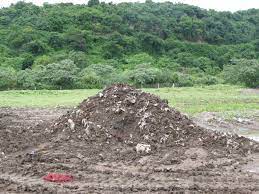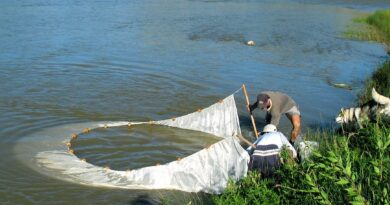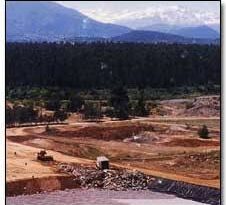Meaning and Generation of Sludge and its Importance
Sludge, which originates from the process of treatment of waste water, which due to the physical-chemical processes involved in the treatment has concentration of heavy metals, poorly biodegradable trace organic compounds as well as potentially pathogenic organisms (virus, bacteria etc.) and which also has high concentration of nutrients etc. need to be properly treated before being discharged or disposed into the water or on land, hence the need for this article.
Meaning and Generation of Sludge and its Importance
Sludge is produced from the treatment of waste-water in on-site (e.g. septic tank) and off-site (e.g. activated sludge) systems. This is inherently so because a primary aim of waste-water treatment is removing solids from the waste-water.
In addition, soluble organic substances are converted to bacterial cells, and the latter is removed from the waste-water. Sludge is also produced from the treatment of storm water, although it is likely to be less organic in nature compared to waste-water sludge.
Bucket latrine and vault latrines store faecal sludge, which needs to be collected and treated. These two types of latrine are not discussed, because no treatment is involved at the latrines and is no more in use in general.
In the former case human excreta is deposited in a bucket and the content of the bucket is emptied daily, usually at night giving the term night soil to the faecal sludge.
In the latter, the excreta is stored in a vault for a longer period of up to two weeks before removal. The content of the vault should preferably be removed mechanically.
The characteristics of sludge vary widely from relatively fresh faecal materials generated in bucket latrines to sludge which has undergone bacterial decomposition for over a year in a double pit latrine. The treatment required is therefore dependent on the characteristics of the sludge.
The former may contain large numbers of pathogens; whereas the latter will contain much less due to pathogen die off. Sludge should, however, always be handled with care to avoid contact with pathogens.

Sludge may be contaminated with heavy metals and other pollutants, especially when industrial wastes are disposed into the sewer. Pre- treatment of industrial wastes is therefore essential before discharge to the sewer.
Read Also : How Creating Recyclable Products Support Effective Waste Management
Treatment of sludge contaminated with high concentrations of heavy metals or toxic chemicals will be more difficult and the potential for re-use of the sludge will be limited.
Faecal sludge contains essential nutrients (nitrogen and phosphorus) and is potentially beneficial as fertilisers for plants. The organic carbon in the sludge, once stabilised, is also desirable as a soil conditioner, because it provides improved soil structure for plant roots.
Sludge Treatment
In sludge treatment, a lot of options are available and they include:
- Stabilisation
- Thickening
- Dewatering
- Drying and
- Incineration.
The latter is most costly, because fuel is needed and air pollution control requires extensive treatment of the combustion gases. It can be used when the sludge is heavily contaminated with heavy metals or other undesirable pollutants.
Prevention of contamination of the sludge by industrial wastes is preferable to incineration. A conversion process to produce oil from sludge has been developed, which can be suitable for heavily contaminated sludge (Skrypsi-Mantele, et al, 2000). The costs of treatment of sludge are generally of the same order as the costs of removing the sludge from the waste-water.
Importance or Uses of Sludge Treatment
The following are the importance and or uses of sludge treatment:
- Reduces organic ingredients
- Removes odor
- Reduces volume and weight
- Improves hygiene by removing of pathogen organisms
- Prepares sludge for further utilization or disposal.
The Technical Research Centre of Finland points out that sludge could be considered as a valuable source for nutrient use, reuse of inorganic material, carbon upgrading processes, and energy production.
A new sludge treatment plant in Mid-Norway-a co-operation project between 51 municipalities produces biogas, electricity and fertilizer from 30 000 tons of annually waste. The plant was opened in March 2008 and started test production on energy, delivering the first electricity to the public net in June.
The plant was designed and built by Cambi-using their patented Thermal Hydrolysis Process (THP). All together it annually produces 189 GWh biogas and around 10 GWh of electricity.
The Cambi THP process is suitable for all types of waste-water treatment sludge and is particularly effective in treating biological sludge, which normally is very difficult to digest and dewater.
The THP treats both municipal and industrial waste-water and bio-waste prior to anaerobic digestion. In order words, production of biogas, electricity and fertilizer are possible because of sludge and its treatment in some countries.
Econova Energy is one of the leading companies on the Swedish market for trading bio mass and recycling waste products from the forest industry, energy companies and municipals.
Econova Energy utilizes by and waste products such as barque and fibre sludge into bio mass, soil products or material for landfill restoration. The end-products are produced in an environmentally friendly manner by the use of sun and wind.
The method also includes stone and metal separation, composting, mixing and preparation for sun and wind drying, harrowing and harvesting. The broad and integrated operations of Econova make it possible for us to offer an overall commitment without any new waste products. Can you now sieve out what this last paragraph is all about?
Read Also : Integrating Economic Incentives to Promote Recycling in Waste Management
Read Also: Bovine Spongiform Encephalopathy: Description, Damages Caused, Control and Preventive Measures



